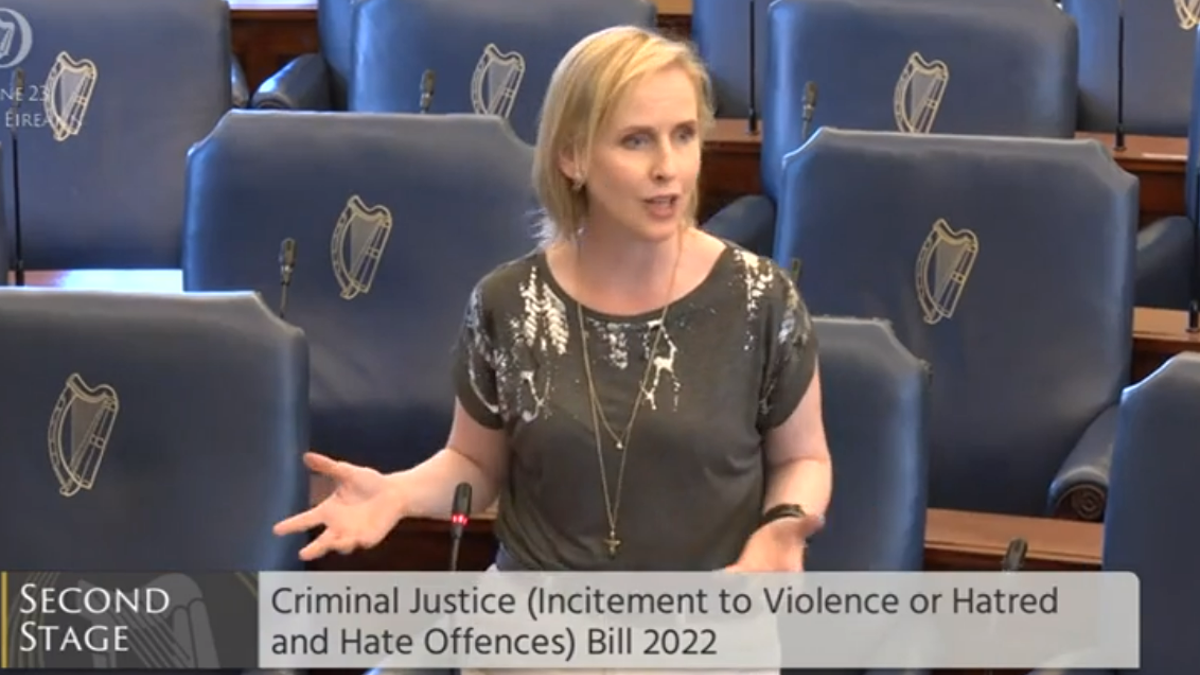An Irish senator has sparked controversy by defending a bill that critics argue could stifle free speech by criminalizing the possession of materials deemed critical of gender identity. Senator Pauline O'Reilly of the Green Party argued that the proposed legislation is necessary for the "common good," drawing parallels to other laws that restrict freedoms for societal benefit.
The Criminal Justice (Incitement to Violence or Hatred and Hate Offences) Bill 2022 allows for imprisonment for preparing or possessing material "likely to incite violence or hatred" based on protected characteristics, including "gender" identity. Concerns have been raised about the potential chilling effect on religious expression and public discourse, with some likening it to the concept of "thought crime."

Senator O'Reilly contends that the bill addresses a critical need to combat hate speech, particularly in the context of online platforms that have amplified harmful rhetoric. She asserted that if an individual's views create an environment where others feel unsafe or deeply uncomfortable, legislators have a duty to intervene and restrict those freedoms. She emphasized that all laws inherently restrict freedoms, but such restrictions are justified when they serve the common good.
This stance has drawn criticism from those who believe the bill's vague language could be used to suppress legitimate dissent and debate surrounding gender ideology. Senator Rónán Mullen highlighted the ambiguity surrounding the definition of gender, citing numerous online classifications, and questioned how the law would be applied in practice. He raised concerns about potential scenarios, such as mocking memes or parental activism against school curricula, that could be misinterpreted as hate speech under the proposed legislation.

Senator O'Reilly framed the debate as a question of fostering a "kinder society," arguing that younger generations are perplexed by the ongoing discussion about gender identity. She linked the issue to historical instances of verbal attacks and the resulting restriction of freedoms. This perspective clashes with the concerns of free speech advocates who worry about the potential for overreach and the chilling effect on open dialogue.

Comments(0)
Top Comments